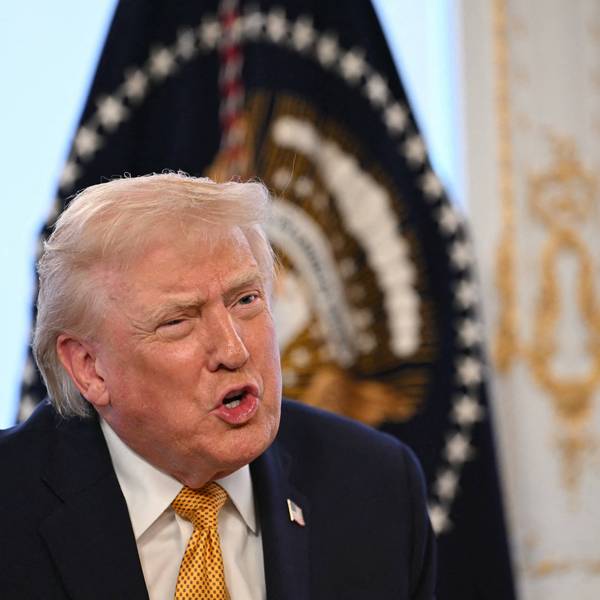President Donald Trump's top pick for deputy director of the U.S. Census Bureau is the author of a book about the dangers of a competitive electoral system--leading to fears among voting rights advocates that the appointment would lead to a politicization of the agency which is heavily involved in how voting districts are drawn.
Thomas Brunelll, a political science professor at the University of Texas, is the author of the 2008 book Redistricting and Representation: Why Competitive Elections Are Bad for America, in which he argued that voting districts packed with like-minded voters are fairer than those with a mix of Democratic and Republican voters.
Should Trump name Brunell the deputy director of the bureau charged with counting every U.S. resident at the beginning of each decade and keeping track of changed in demographics, it would signal "an effort by the administration to politicize the census," according to Terri Ann Lowenthal, former co-director of the Census Project, who was interviewed by Politico. "It's very troubling."
Brunell has testified in court cases numerous times in support of Republican gerrymandering efforts, telling Ohio lawmakers during a hearing on redistricting reform in 2013 that "competitive elections maximize the number of losing voters and fundamentally hurts the ability of a representative to represent his or her constituents."
Brunell has acknowledged that his views on voting districts are outside the mainstream, but in the top operational role at the Census Bureau, they could have serious implications given that the next Census will be taken in 2020.
"This is not a man that should be handed the keys to the 2020 Census," said Karen Hobart Flynn, president of the grassroots organization Common Cause. "Americans expect and deserve a fair and accurate Census that is free from the political partisanship Brunell would bring to the process."
"The fate of the census under President Donald Trump has been closely watched by voting-rights advocates worried that the administration--which has already made unsupported claims about voter fraud--might nudge it in directions that over- or undercount some Americans," wrote Danny Vinik and Andrew Restuccia in Politico. "Subtle bureaucratic choices in the wording and administration of the census can have huge consequences for who is counted, and how it shifts American voting districts."
One potential impact of Brunell's appointment could be the inclusion of a question in the next Census regarding respondents' immigration status, which he and other Republicans have pushed for.
Civil rights groups have argued that a question about citizenship could prevent members of minority groups from participating in the Census, giving the government an inaccurate picture of who lives in the U.S.--and paving the way for the type of redistricting Brunell advocates.
Critics also spoke out against Brunell's suspected appointment on social media.




